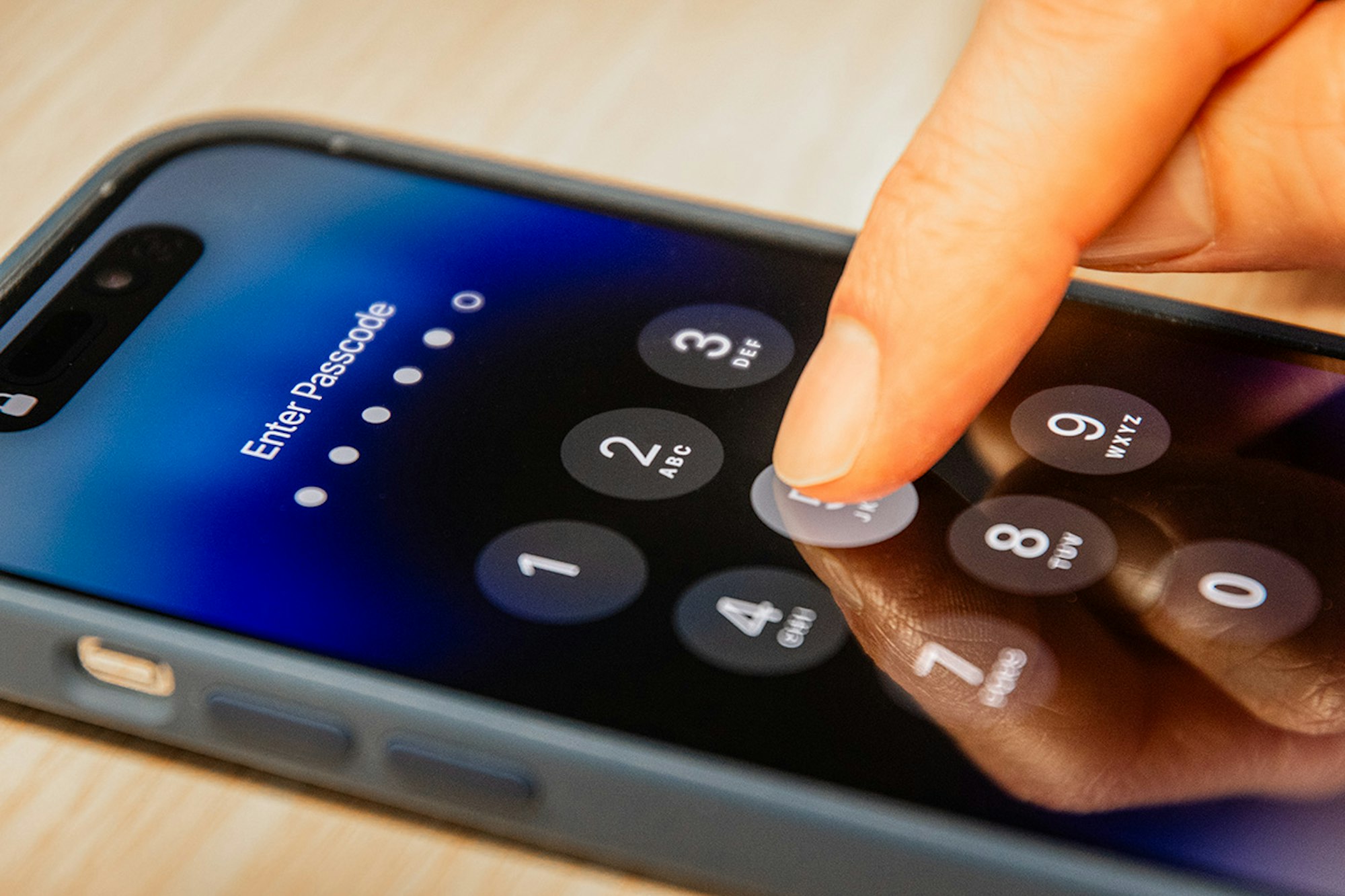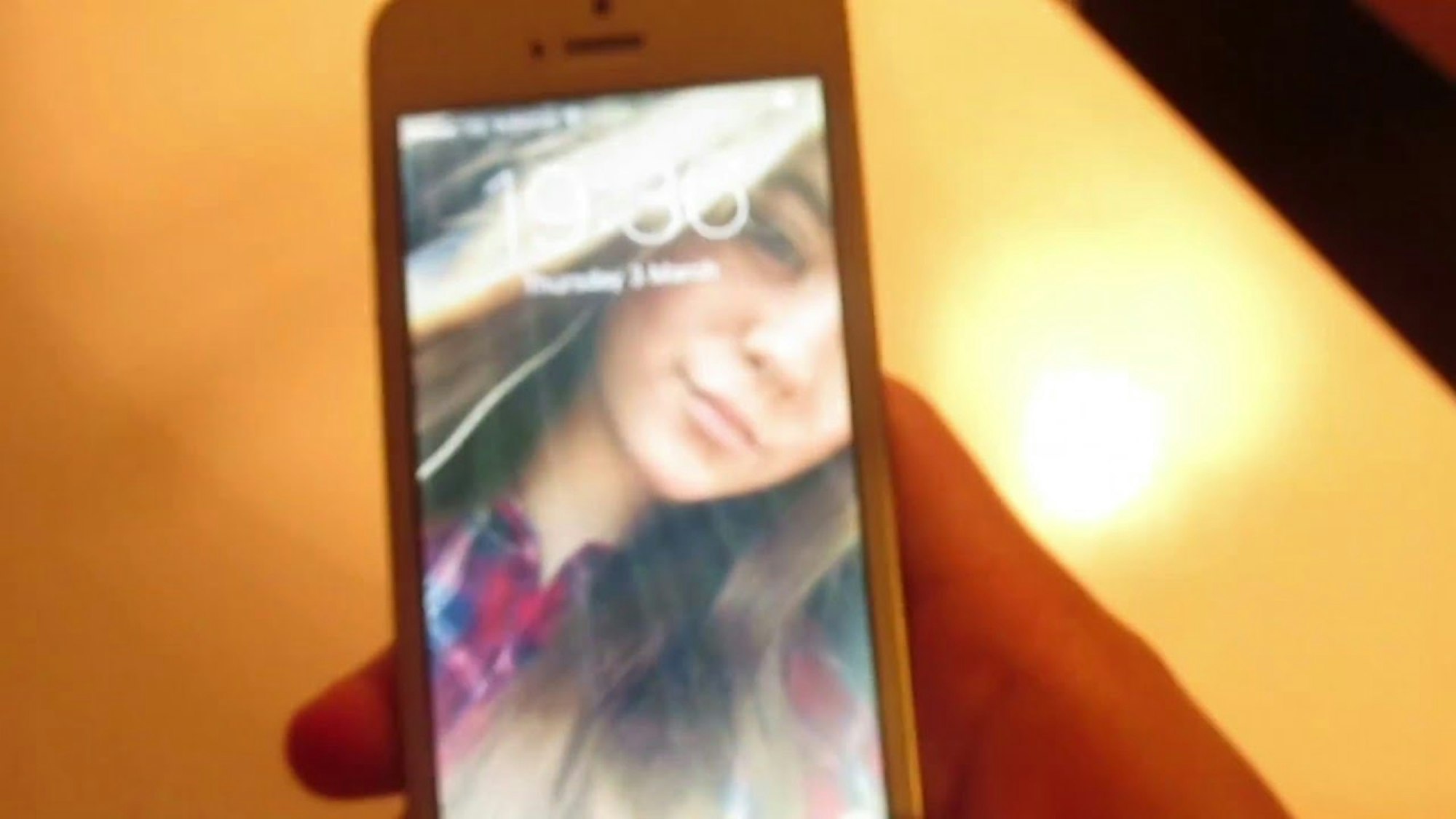Can Someone Hack My iPhone Passcode?

Updated:

The iPhone is one of the most popular smartphones in the world, and for good reason. It’s sleek, user-friendly, and has powerful security measures in place to protect your personal data. However, with the rise of cyberattacks and hacking attempts, many people are understandably concerned about the security of their iPhone passcode.
Can someone hack your iPhone passcode? The answer is not as straightforward as you might think. In this blog post, we will explore the different ways someone might attempt to hack your passcode and provide tips on how to keep your iPhone secure. So, let’s dive in!
Protect your iPhone from hackers
Download the award-winning Certo Mobile Security for free today.
Can iPhone Passcodes Be Hacked?
The short answer is… Currently no. If you have a fully updated, newer iPhone then there is no publicly known way for someone to hack or brute force an iPhone passcode.
This highlights why it’s important to ensure that you keep your phone updated as regularly as possible.
The long answer is… In theory, it can be done in some circumstances, but it’s extremely unlikely. Here are a few examples of passcode hacking and brute forcing in the past few years to give you an idea of what is/has been possible:
- In 2016, a company called Elcomsoft had a product that could hack the passcode on iPhone 4 (or earlier) models. So for most people, this isn’t going to be a problem.
- There is a product called ‘GrayKey’ by GrayShift. This is a device that plugs into an iOS device and can crack the passcode. This takes a matter of hours (for 4-digit passcodes) , a few days (for 6-digit codes) or longer for more complicated passcodes. However, it also only works on devices running iOS 11 or older. Another reason to keep your phone updated.
- In 2019, an Israeli company called Cellebrite issued a public announcement stating that they could hack the passcode on any iOS device up to iOS version 12.3. They claimed their main purpose was for use with law enforcement needing access to a suspect’s data.
- In December 2019 a new iOS vulnerability was discovered called checkm8. This exploit potentially allows a hacker to jailbreak a device without needing to know the passcode and access small amounts of data on the device, including keychain data such as account passwords and usernames. While this attack can be used to retrieve some data from a locked iPhone, when the passcode is unknown to the hacker, it will not be able to crack the passcode and allow the hacker to unlock the phone. This vulnerability only affects devices with an A11 chip or older (that means iPhone XS and newer devices are not affected).
Aside from the above, there have also been several ‘bugs’ discovered by iPhone enthusiasts which allow the device to be unlocked without the passcode. One example (see video below) involved activating Siri from the lock screen and then performing several steps in a specific order to trick the phone into unlocking without the passcode ever having been entered.
However, this bug along with many similar ones over the years were quickly patched by Apple in software updates.
How to Keep Your iPhone Passcode Safe from Hackers
As we mentioned at the beginning of this post, the best way to protect your iPhone passcode from being hacked is to create a passcode that is complex enough so that it won’t be easily guessed.
Other than that, here are a few more steps to follow:
- Use a complex passcode. We recommend using a passcode of at least 6 characters. There are 1,000,000 combinations compared to just 10,000 for a 4 digit passcode, making it much harder to crack.
- Don’t use an obvious passcode. That means no birthdays, anniversaries, sequential numbers. Choose a passcode that won’t be easily guessed by a third-party. It might even be a good idea to use a random number generator – as long as you can remember the password.
- Use TouchID or FaceID. This can for the most part reduce the need to input your passcode and limit the risk of someone else viewing your code.
- Be careful who’s looking over your shoulder when you type in your passcode. This is the number one way that people try to find out your passcode before attempting to get access to your phone at a later point in time.
- Install Certo Mobile Security on your iPhone. This award-winning free app will scan your iPhone for security vulnerabilities and it’s unique Security & Privacy Audit will help you set up your device to be as secure as possible.
Wrapping Up
So, overall you are generally pretty safe from iPhone passcode thieves so long as you stick to the basic advice we’ve given here, make sure that you don’t give out your passcode, and don’t choose something easy to guess.
On top of that, please make sure your iPhone is always updated. It’s a very simple process and takes little more than a few minutes. Apple are generally good at patching vulnerabilities in security updates to help their users stay as protected as possible.
Frequently Asked Questions (FAQs)
What is the strongest passcode for iPhone?
The strength of an iPhone passcode largely depends on its complexity and length. The iPhone allows different types of passcodes:
- 4-digit numerical code: Offers 10,000 possible combinations.
- 6-digit numerical code: Offers 1,000,000 possible combinations.
- Custom numerical code: Allows for a passcode longer than 6 digits.
- Custom alphanumeric code: Uses a combination of numbers, letters (both uppercase and lowercase), and symbols. This is the strongest option as it offers the highest number of possible combinations, especially when the passcode is long.
For maximum security, it’s recommended to use a custom alphanumeric code and make it as long as you can comfortably remember. Additionally, avoiding easily guessable combinations or sequences, like “123456” or “password”, is crucial.
Can someone unlock my iPhone without me knowing?
While iPhones are designed with numerous security features to prevent unauthorized access, no system is entirely immune to potential vulnerabilities. There have been instances in the past where security researchers have discovered ways to bypass the lock screen, though Apple quickly patches these vulnerabilities once they are identified.
However, in everyday scenarios, it’s challenging for someone to unlock your iPhone without your knowledge, especially if you have set a strong passcode, enabled biometric authentication (Face ID or Touch ID), and kept your iOS updated. Remember, physical security is also important; don’t leave your device unattended in public places.
What if I forgot my iPhone passcode?
If you forget your iPhone passcode, you’ll eventually be locked out after multiple unsuccessful attempts to enter it. Unfortunately, there isn’t a way to recover the passcode itself. Your best option is to erase your device, which deletes all data, and then restore from a backup. Here’s what you can do:
- If you’ve backed up your iPhone with iCloud or iTunes, you can restore it from one of those backups after erasing.
- If you use iCloud and “Find My iPhone” is enabled, you can use the iCloud website to erase your iPhone remotely.
- If none of the above options are available, you’ll need to use Recovery Mode to restore your iPhone. This will erase all data on the device.
Always ensure that you regularly back up your iPhone to avoid losing important data.
Can someone unlock my iPhone in Lost Mode?
When you activate Lost Mode on your iPhone:
- The device is locked, requiring your passcode for access.
- A custom message can appear on the lock screen.
- You can track its location using “Find My iPhone”.
Unlocking an iPhone in Lost Mode without the passcode is very challenging due to Apple’s security measures. While technically possible for someone with specialized tools and knowledge, it remains extremely difficult. Notably, if someone were to wipe the device, your personal data would be erased, making it inaccessible. Always use strong passcodes and keep your software updated for optimal security.
